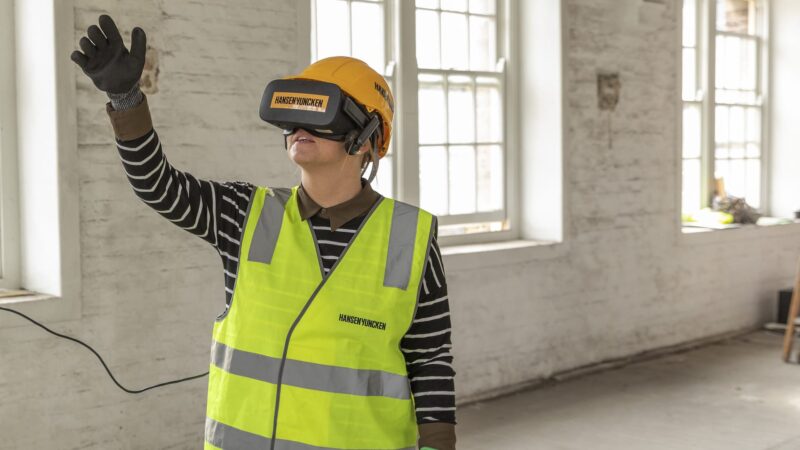In today’s world, modern construction challenges require innovative solutions. From creating efficient and safe working environments to reducing the environmental impacts of the construction process, technology has become an essential part of commercial construction projects.
Through advancements in technological capabilities, businesses have had to adapt their strategies and operations to remain competitive. This article will explore how new technologies are being used to address these challenges and provide insight into the opportunities they can bring for both contractors and clients.
With a focus on efficiency, safety, sustainability, and cost savings, it will explain why embracing these cutting-edge solutions is becoming increasingly necessary for success in this ever-evolving industry.
Automation Tools for Streamlining Project Management
Modern construction projects can be complex and time-consuming, with many moving parts that need to be managed effectively. Fortunately, there are several innovative automation tools available for streamlining project management.
These tools help to reduce the amount of manual labor needed onsite, freeing up resources for more creative solutions and reducing potential scope creep due to miscommunication or delays in communication.
Automation tools also allow remote teams to collaborate seamlessly from anywhere in the world, creating better visibility into progress and allowing for faster decision-making during the development process. With these powerful automation solutions, construction projects can take advantage of modern technologies without sacrificing quality or efficiency.
Utilizing Virtual Reality for Improved Design Visualization

In the modern age, commercial construction projects are faced with unique challenges. To overcome these obstacles and maximize efficiency, many companies have begun utilizing virtual reality (VR) technologies as a powerful tool for improved design visualization. VR offers an immersive experience that allows builders to visualize complex designs in real time and make changes quickly. This can significantly reduce errors and save time during the planning process.
Additionally, since everything is digitalized within a VR environment, architects can easily share their plans with clients or other stakeholders without worrying about transferring physical documents or models. All of this makes virtual reality an invaluable asset in the construction world today.
With its ability to provide accurate visuals of what’s being built before it’s even constructed, the utilization of VR technology is becoming increasingly popular among commercial contractors who want to stay ahead of the competition by embracing innovative solutions for modern construction challenges.
Integrating Smart Building Technologies to Increase Efficiency and Security

In the commercial construction industry, it is essential to stay ahead of the curve and use innovative solutions that can help increase efficiency and security. Commercial construction technology glossary is becoming increasingly popular as it provides several benefits such as improved energy savings, increased safety measures, and streamlined operations. Companies can leverage these technologies to reduce costs while providing enhanced customer experiences.
For example, by integrating smart sensors in buildings, companies can monitor temperature levels more accurately to ensure optimal conditions for employees or customers. Additionally, artificial intelligence (AI) systems can be used to automate certain tasks such as machine learning-assisted door unlocks which allow only authorized personnel into specific areas with secure access control systems.
Furthermore, smart building technologies offer real-time analytics on usage patterns which helps identify potential risks or issues before they arise and allows management teams to take proactive steps toward addressing them quickly.
By utilizing these advanced technological solutions businesses may experience improved operational performance while ensuring the safety of their staff and customers alike.
Leveraging Cloud Computing to Enhance Collaboration Across Teams

As the construction industry increasingly looks to technology solutions to improve efficiency, collaboration across teams is becoming a key factor of success. Cloud computing provides an effective platform for storing and sharing data efficiently and securely, helping teams collaborate more effectively from any location.
By leveraging cloud computing, modern construction projects enjoy improved communication between stakeholders, allowing project managers to stay in sync with their colleagues on day-to-day updates over long distances.
Additionally, task management tools help project leaders assign tasks quickly and track progress easily with real-time notifications when changes are made or new information is shared. Finally, cloud solutions enable architects and engineers to securely share designs among team members while keeping the valuable intellectual property safe from cyber threats.
All of these benefits make it easier for contractors to work together on complex projects without sacrificing security or quality control. In sum, leveraging cloud computing is essential for facilitating collaboration across teams in today’s commercial construction industry.


